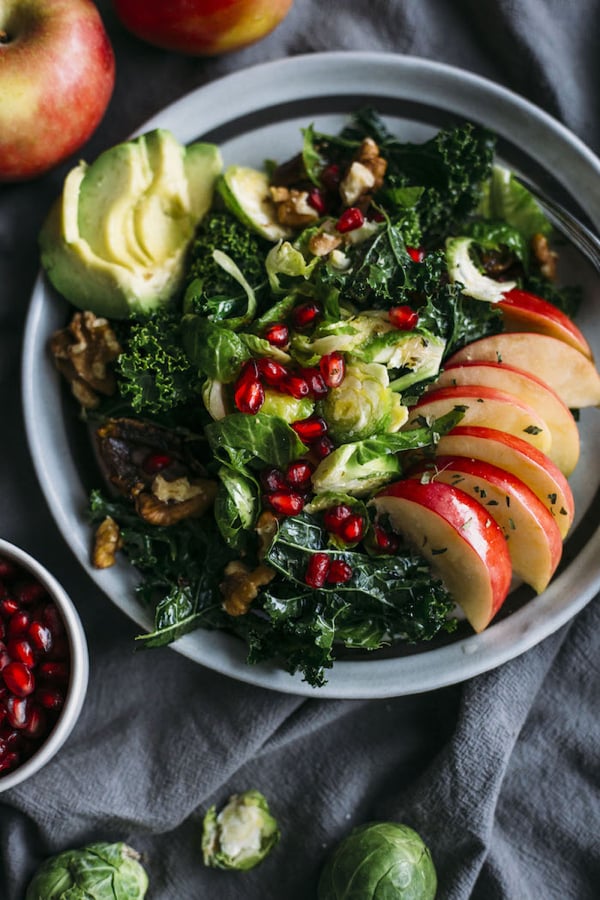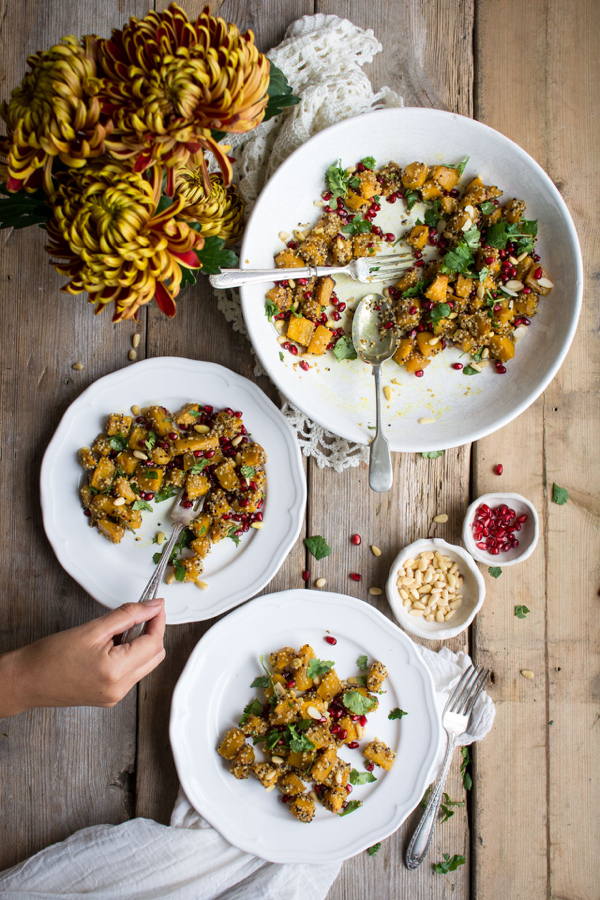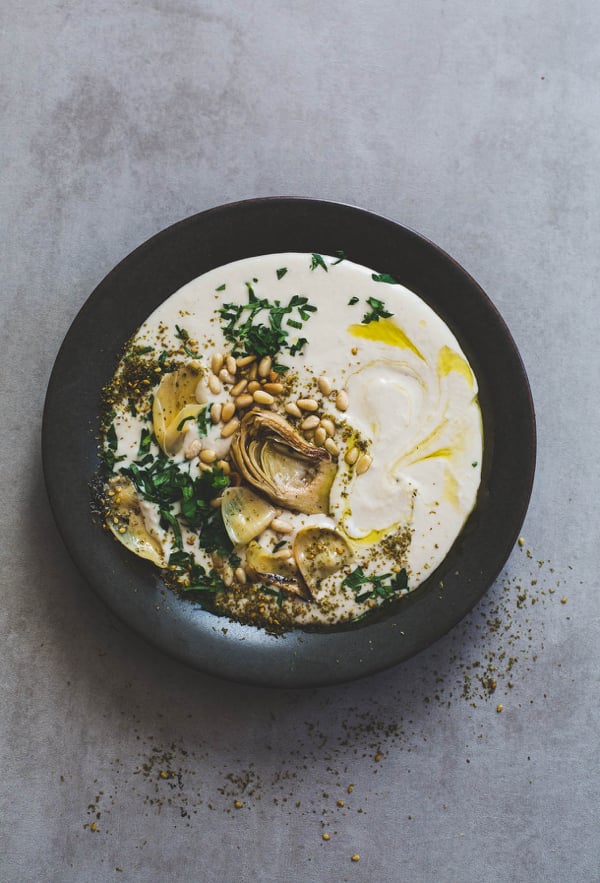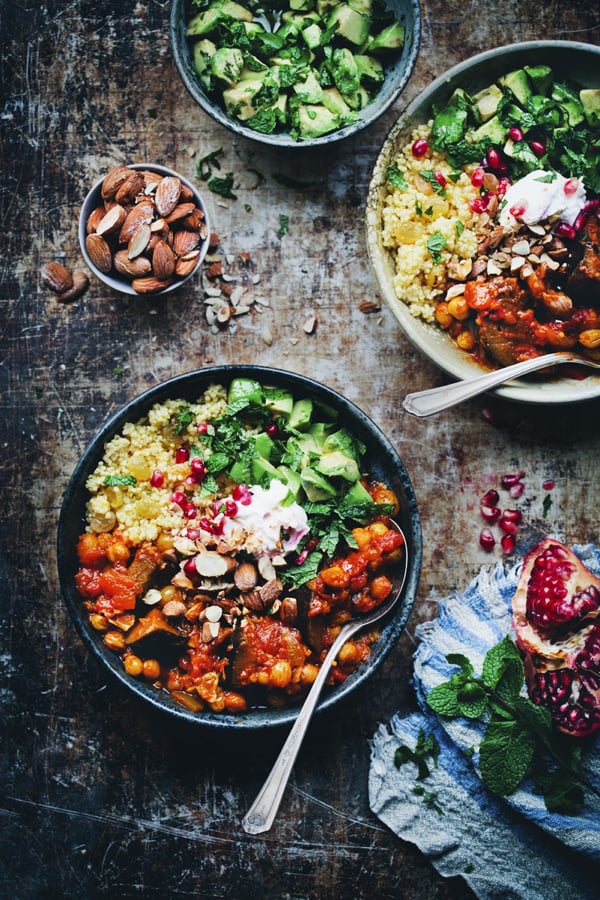Welcome to a Monday edition of weekend reading! To those of you who were observing the Thanksgiving holiday this past weekend, I hope that you’re easily settling back into the swing of things.
With December just around the corner, I’ve been thinking about the holiday season and its various meanings. The winter holidays are presented as a time of togetherness and celebration, but what’s often left unsaid is that they can be quite lonely, too. This could be true for any number of reasons: perhaps the season forces you to confront difficulties or rifts within your family. Perhaps it brings out tensions or differences of opinion between you and those you love. Perhaps, for whatever reason, you have a hard time partaking in group gatherings. Perhaps there is somebody you miss, a sorrow that emerges, or a memory that becomes more vivid and poignant at this time of year.
I’m feeling a bit of all of those things right now. What I’m feeling most of all is the challenge of being an introverted person during this extroverted and stimulating season. I retreat inward in groups, especially very outgoing ones. I crave connection during the holidays just as many of us do, and I want to enjoy rituals and celebrations. But it’s often the case that holiday gatherings leave me feeling drained, or even a little alienated, rather than connected.
It’s difficult not to perceive this as my own failing, or deficiency. But I’m coming to understand that, while it’s important to fight past the resistance and find my own way in groups, my orientation is not necessarily something I need to apologize for. One step was to read Susan Cain’s book, Quiet, which helped me to realize that introversion is simply one way of being in the world. Not better, not worse, simply its own thing. It may be less socially reinforced than extroversion, but it has its own gifts to offer.
Creating practical boundaries is also helpful. Whereas I used to try to force myself to put on more of a show in groups–which only heightened my sense of disconnect–I’ve developed a capacity to speak up in a way that feels intentional and honest. And I know how to regroup and re-energize in the days before or after a lot of socializing. Yoga, meditation, and cherished activities like reading or cooking allow me to get centered again if group dynamics have felt overwhelming. If a craving for connection hasn’t been met, I might take the time to compose a thoughtful email, pick up the phone, or suggest coffee with a friend.
In that same vein, I’ve been giving some thought to what it might feel like to allow loneliness to be a teacher of sorts, rather than viewing it as reason for sadness or despair. Pema Chödrön says that “relaxing with loneliness is a worthy occupation,” because it trains us in the difficult art of finding ease within uncomfortable emotional states. She asks,
When you wake up in the morning and out of nowhere comes the heartache of alienation and loneliness, could you use that as a golden opportunity? Rather than persecuting yourself or feeling that something terribly wrong is happening, right there in the moment of sadness and longing, could you relax and touch the limitless space of the human heart?
I do not pretend to know, at this moment in my life, what it means to “touch the limitless space of the human heart” in the face of alienation. But the quote resonates with me all the same, because I suspect that loneliness does present us with an opportunity of sorts. I think that it gives us a chance to sit quietly with ourselves and regard whatever comes up with compassion and respect. I know that some of the loneliest periods of my life were those that taught me the most, that offered me the most opportunity to grow.
I’m keeping all of these things in mind as the holiday season gets underway. The get-togethers that make this time of year so special to others may never be what I look forward to the most, and in fact, they may demand that I do a little emotional safeguarding. But I can appreciate the season in other, equally meaningful ways. For me, these include listening to the sacred music I grew up with, domestic rituals, and taking the time to write greeting cards by hand. Food–especially the creation of homemade gifts–is a big part of my personal holiday observance, too.
The other day in yoga, my teacher invited us to carry out our breath practice with our left hand planted gently on the ground and our right hands resting on our knees, the palm upward. She was offering us this posture, she said, to help us stay grounded through the holidays. It did indeed seem like a perfect physical expression of the equanimity that can be so important at this time of year: receptiveness and openness on the one hand, grounding and self-support on the other. A capacity to receive and appreciate offerings while also maintaining one’s boundaries.
However you choose to observe or experience the holiday season, I wish you meaning and peace within your choices. And in keeping with these ideas, this week’s roundup features plenty of articles and musings on head and heart, along with some tasty seasonal fare.
If you’re craving something cool and simple after a long weekend of cooking, then Erin’s apple, kale, and brussels sprout salad is for you. I love the addition of medjool dates and creamy avocado!
Last week I was excited to see two of my favorite bloggers teaming up to create a beautiful vegan recipe together! Kimberly of The Little Plantation and Lauren of Lauren Caris Cooks created the marinated pumpkin salad with quinoa and pomegranate that you see above, and it’s a beauty. Read Lauren’s take on the recipe here, and Kimberly’s here!
I’m loving Amanda’s silky smooth, Mediterranean-style white bean hummus. Speaking of socializing, it’s a perfect recipe to bring to parties or serve as an appetizer, and the hearty toppings (artichoke, pine nuts) are a nice touch.
It’s hard to think of a more beautifully colorful or festive dish than David and Luise’s Moroccan eggplant and chickpea stew. I had no idea that saffron is used as a Christmas spice in Sweden, but it makes this dish all the more vibrant.
For a little sweet treat, I’m ready to put on my baking mitts and make Nicole’s caramel apple crumble wedges. After a week of rolling and shaping pie crust, these look delightfully low-key (and very delicious).
Reads
1. If the theme of introversion speaks to you, you may smile to read Lynn Beisner’s guide to surviving Thanksgiving as an introvert. I find a lot of her tips helpful, especially the suggestion of having a certain activity or quiet space that helps to make gatherings easier. I always feel calmer and more purposeful if I can help with cleaning or cooking at a holiday event.
2. For the longest time I struggled to accept compliments and praise; I was quick to deflect them, whether by brushing them off altogether or by minimizing what was being praised (“it’s no big deal,” etc.).
Over time I’ve come to see that there is a particular kind of generosity and grace that resides in accepting other peoples’ appreciation, and I’ve realized that my consistent rejection of praise can be potentially hurtful or ungrateful.
This is the theme that Sally Kempton tackles in her Yoga Journal article on “the art of receiving.” Kempton seems to understand keenly why and how it can be so very difficult to receive; in fact, she suggests that receiving is “a yoga in itself”:
Receiving is a yoga in itself—one that demands a high degree of sensitivity, awareness, and even skillfulness. For one thing, we need to recognize that we’re being given a gift—whether it’s a birthday present, a compliment, a teaching, a helpful piece of feedback, a genuine service, a loving gesture, or a blessing from the invisible realms. Second, we need to cultivate enough stillness and openness to take it in. Third, we need to appreciate it, to value it, or, at the very least, to value the giver’s intention. Fourth, we need to feel that we deserve it—that the gift is neither too much, too little, or too out of line with who we are. In fact, the word “receive” comes from the Latin word recipere, which means “to take back.” This implies that what we receive is already ours in the sense that we do, indeed, deserve it, that it completes something within us, or simply that we’ve attracted it by the nature of our being.
We may sometimes struggle to understand why someone is offering us a certain kind of praise or compliment. In the face of our own bewilderment, we might simply trust in the validity of another person’s appreciation, rather than rejecting what we feel we haven’t earned. I haven’t come close to mastering this practice, but even my small efforts have taught me a lot about gratitude.
3. This week the New York Times took a look at supplements from a practical perspective: which are worth our dollars? Not too surprisingly, most of the research we have suggests that whole foods are always the best means of obtaining the nutrients we need, and many supplements fail to deliver on their promises when examined in double-blind, placebo-controlled trials.
Of course, this isn’t to say that targeted use of supplements isn’t often necessary. For vegans, it’s absolutely necessary in the case of Vitamin B-12 and often advisable for Vitamin D and/or DHA. The trick is to be able to identify which nutrients can be sensibly, adequately, and realistically obtained through diet, and which can’t. My feeling is that it’s usually the best option to source a nutrient through food when possible, but there are plenty of exceptions to this rule.
4. Entrepreneur Jonas Koffler reflects on what he learned from having a stroke at the age of 26. A quintessential go-getter, Koffler had been working at a breakneck pace and ignoring ominous health signs when a stroke rendered him unconscious at the office. Like many young and ambitious people, he had been carrying on with the belief that his body could and would withstand any amount of stress.
In the end, he learned otherwise, and that lesson gave way to many others in how to live a more balanced and meaningful life. Koffler’s experience may be unusually dramatic, but I think that many of us have had similar wakeup calls when it comes to slowing down, cultivating gratitude, and expanding our definitions of success.
5. A good article on the art of setting boundaries. What resonated most with me is the importance of direct language, of not dissembling and couching one’s needs in a lot of apologies and verbal obfuscation. This is a habit that I’m certainly guilty of–not stating my boundaries directly enough–and it’s a definite handicap. On the one hand, it doesn’t encourage me to own my own needs; on the other hand, it wastes other peoples’ time, because it forces them to parse through my indirectness. I’m working on it, and it’ll be an ongoing process in the new year.
On that note, I hope that this Monday is off to a promising start for all of you. I have an easy, cozy, and hearty recipe on the way later this week, which I’m excited to share.
xo
You might also like
I had every intention of sharing some food this week, but blogging (and a bunch of other things) got put on the back burner. My mom had a total knee replacement, so I’ve been pitching in at her place, keeping her fridge stocked and doing my best to be helpful in other, small ways. She’s healing well, giving PT all of her effort and attention, and I know she’ll be up and about in no time. Being by her side brought up a…
Early this week, I was flipping through Yoga Journal and found an article from the magazine’s archives, written by Keith Kachtick, about impermanence. It was written in 2008; in it, Kachtick recalls being on a trip to Miami, shell-shocked by the realization that his marriage was ending. Ambling through South Beach by himself, he stumbled on an exhibition of Tibetan art and culture that featured six Buddhist lamas completing a sand mandala in public. “[I]t was the first moment of genuine ease I’d…
Happy Sunday, everyone. Thank you so much for your comments on Jen’s green recovery story on Friday. I know that they’re meaningful to her, and I always appreciate the chance to hear your insights. Speaking of green recovery, it’s now officially National Eating Disorder Awareness Week. In honor of that, I’ve put together weekend reading links that include articles and essays about EDs. I hope you’ll find them interesting and informative, and if you think any of them might be worth sharing with family, friends, or…
My voice is hoarse from singing, and lots of it. I was at a kirtan last night at my yoga studio, basking in that awesome community and the friendships I’ve made within it. The kirtan featured mash ups of Vedic chants and contemporary songs: the Beatles, Magnetic Fields, Madonna. The kirtan purist in me was a little affronted when I heard that the program would work this way, but I’m glad that I kept an open mind. It was wonderful. Kirtan and yoga:…







Leave a Comment
Thanks for sharing your thoughts and feelings with us. As a fellow introvert, sometimes I feel most alone among a large crowd of people. And I’m constantly being asked why I’m so quiet, which makes me even more uncomfortable! It’s always nice to be reminded that we aren’t total misfits!
Gena,
I am a longtime reader of your blog and have really been appreciating your recent sharing of personal challenges and growth. I relate to much of what you write, which — speaking of the loneliness and alienation you allude to in this post — helps me to feel less alone in some of the struggles I’m engaged with in my own life.
Regarding interacting in groups of people, you write, “I used to try to force myself to put on more of a show in groups — which only heightened my sense of disconnect.” I can’t overstate how much this resonates with me. I’m someone who grew up feeling very much on the outside of whatever situation I found myself in. I didn’t quite fit in at home, didn’t quite fit in at school . . . to an outside observer, I probably looked to be doing great: achieved really well academically, swam competitively, belonged to a traditional nuclear family. On the inside, though, I felt very much alone in my opinions, values, and interests, a state of affairs that has not changed much through my adulthood. For a long while, I thought, “Okay, even if I don’t FEEL I fit in, I can ACT as though I do, and perhaps over time this ‘fake-it-till-you-make-it’ approach will lead to greater connection.” Wrong. “Fake-it-till-you-make-it” led to the exact feelings of disconnect you describe. Others may have accepted me socially, but I still never felt as though they did because the “me” being accepted wasn’t the real me at all! Now I find myself in my mid-thirties thinking it’s better to be myself and “weird” than act as other than myself and be accepted. Although perhaps I’m right, and the former IS better than the latter, either way feels like a lonely proposition to me if I’m being completely honest. In any case, though, thanks for your uncensored sharing. It is nice to know I’m not the only person who experiences these feelings.
Oh thank you so, so much. Having one of my recipes featured is always special, but to have one featured where I collaborate with another blogger, that’s even better.
Wishing you a wonderful week.
Hugs
Kimberly
Gena, thank you for this beautiful article on the art of receiving. Will read again. And again. xoxo
also loved these beautiful words of yours: “I suspect that loneliness does present us with an opportunity of sorts. I think that it gives us a chance to sit quietly with ourselves and regard whatever comes up with compassion and respect.” So true. And Quiet is one of my favorite books. xoxo
This is a great roundup! I had so much fun collaborating with Kimberly, thanks for including our salad!
I just finished read Susan Cain’s book this year too and found it so helpful in understanding myself and articulating my struggles with social situations. I also love connecting, but often find big groups tiring and overwhelming. Before this book, Ryan would often remark that he didn”t believe that I was an introvert because I seemed to handle social situations so well. Outwardly yes, but inwardly, I would get so worn down. Now I can accept my limits and I am careful not to overschedule us during this busy season. Wonderful finds around the web, as always. 🙂